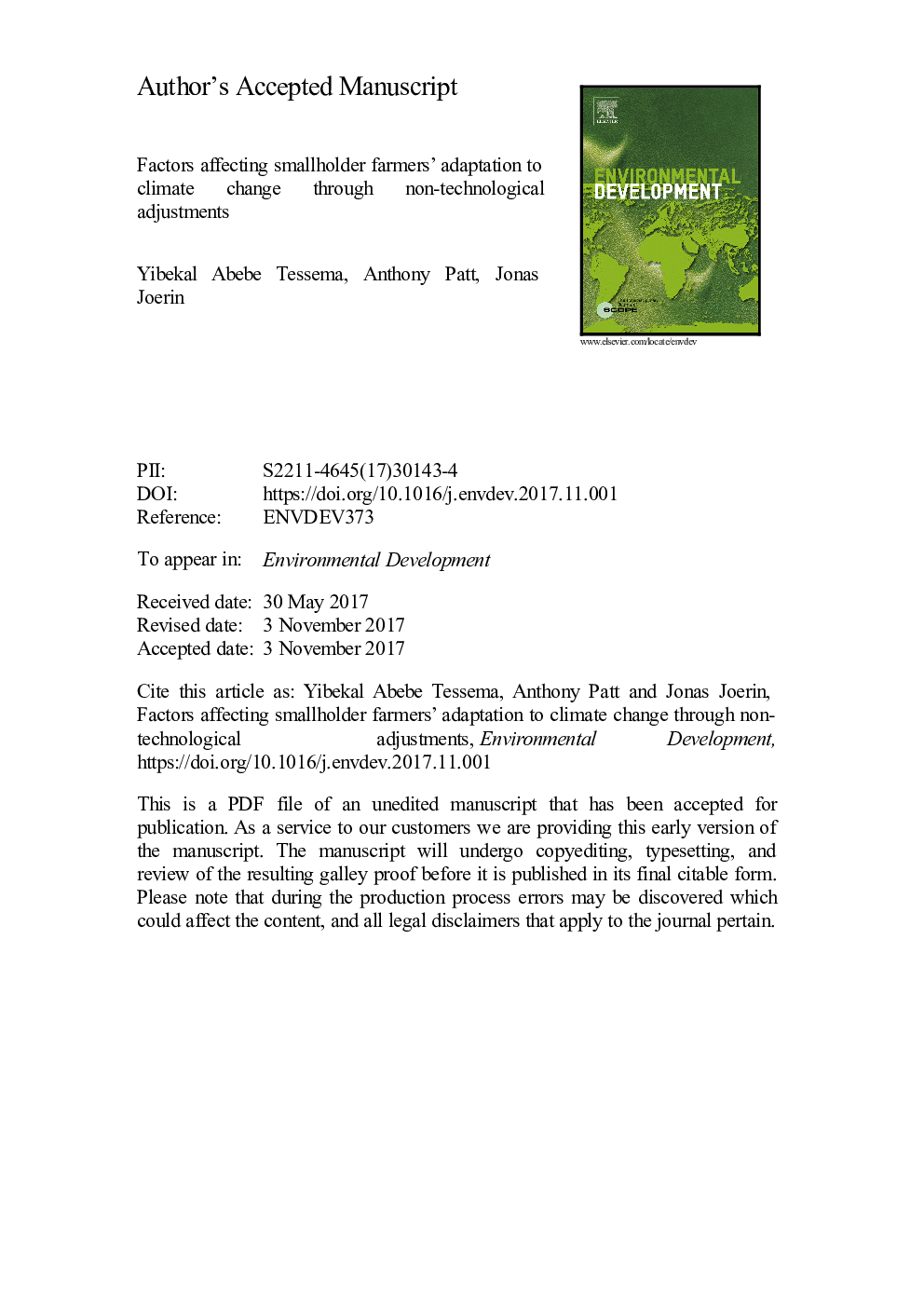| Article ID | Journal | Published Year | Pages | File Type |
|---|---|---|---|---|
| 8848287 | Environmental Development | 2018 | 22 Pages |
Abstract
Smallholder farmers often employ inputs and practices they are traditionally well acquainted with to adapt to climate change. These types of adjustments, henceforth referred to as non-technological, are not only more feasible in the resource-constrained situation of smallholder farmers but also have a potential to significantly reduce the negative impact of climate change. However, a systematic study of these types of adaptations isolating them from technological ones is still lacking. While technological adaptations can benefit from the extensive literature on the adoption of agricultural technologies, non-technological adaptations still need further examination as one distinct group of adjustments. We hypothesize that this group of adaptations strongly depend on farmers' accumulated experience rather than financial resources and level of schooling. To test this hypothesis, we compared the determinants of changing planting date and changing crop type as non-technological adaptations, with the determinants of two technological adaptations: fertilizer use and rainwater harvesting. The investigation relied on a survey of 270 farm households in Semien Shewa Zone of Ethiopia. We used Wilcoxon Signed rank test and verified the importance of climate change in inducing the adjustments. A Multivariate probit model was then used to identify their determinants. Our hypothesis is supported by a positive relationship between farm experience and changing planting date, while fertilizer and rainwater harvesting showed a positive correlation with access to credit and level of schooling respectively. Our findings suggest that targeting non-technological farm-level adaptations through interventions focused on experience sharing can alone play an important role in reducing the impact of climate change in agriculture.
Keywords
Related Topics
Life Sciences
Environmental Science
Ecology
Authors
Yibekal Abebe Tessema, Jonas Joerin, Anthony Patt,
